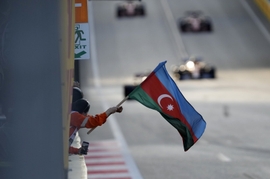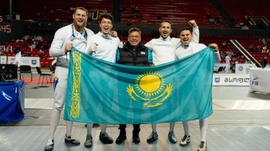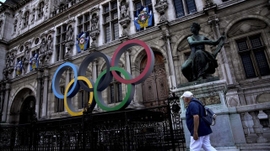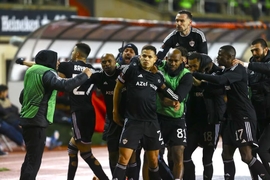Millions of hearts beat anxiously in Tofig Bahramov stadium in Baku on Tuesday, as mouths chanted the same words. When Azerbaijan’s Qarabağ football team scored the only goal in the game against the Danish team København (Copenhagen) in the Union of European Football Associations (UEFA) Champions League playoff round, fans were relieved – and went wild.
Qarabağ outpaced København 1-0 in what was the first leg of the playoff rounds, considered a major hurdle and helping pave the way for Qarabağ to make it to the Champions League group stage.
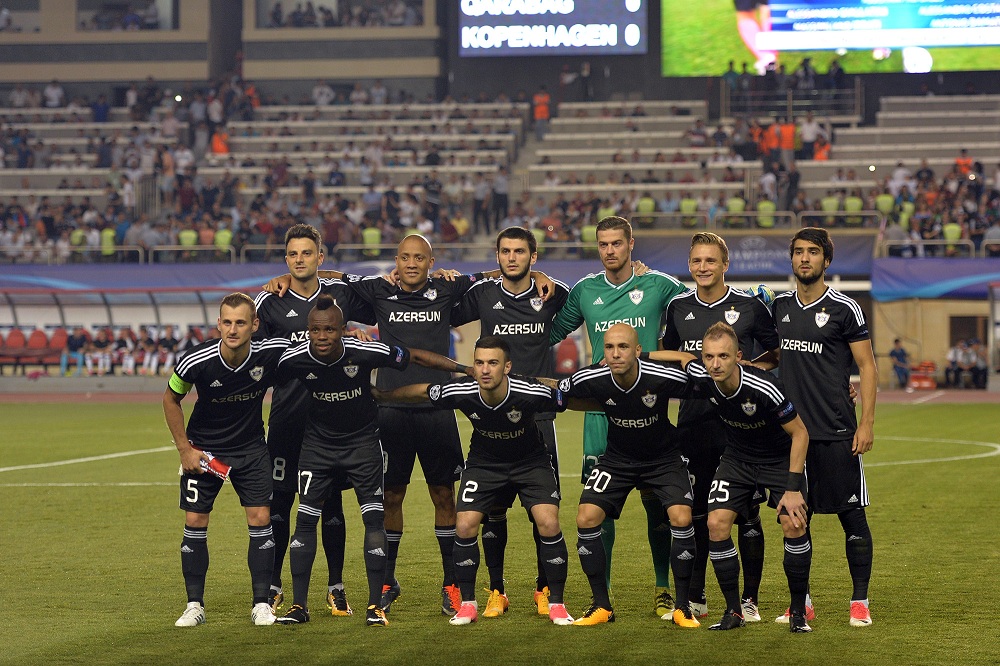
More than 30,000 fans celebrated the only winning goal by Qarabağ at the 25th minute of the game, with forward Mahir Madatov finding the net after Dino Ndlovu’s shoot hit the post. Twenty-year-old Madatov was subsequently awarded “Man of the Match” by UEFA for his performance.
“We’ve played against a good team. I’m satisfied with my team’s performance. My players and our fans deserve the best of support,” Qarabağ’s head coach Gurban Gurbanov told media Tuesday at a post-match press conference.
The win is keeping hope alive that Qarabağ will continue its pace and again beat København during the second-leg match in Parken Stadium in Copenhagen on August 23. If Qarabağ wins that game it will move on to the group stage, a first for the team and Azerbaijani football.
“[Tuesday’s] victory is not the final result. København plays quite well at home. We’ll try to finish the away game with our heads high,” Gurbanov said.
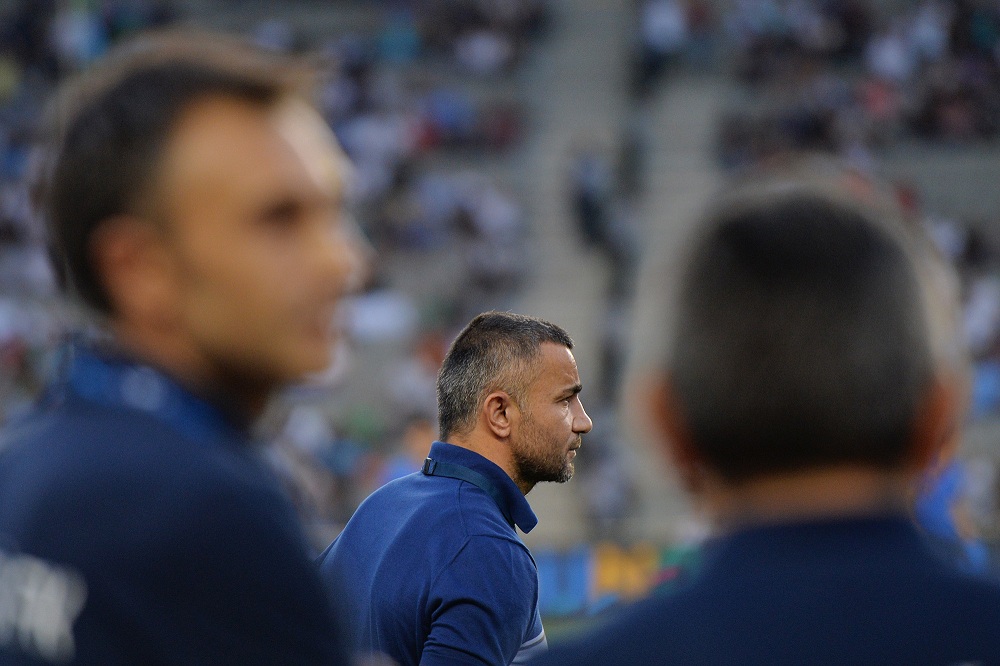
The UEFA Champions League began in mid-July with three knockout qualifying rounds and a play-off round. The 10 surviving teams enter the group stage, joining 22 other teams qualified in advance. Qarabağ is hoping to clinch one of the 10 positions.
For Azerbaijani’s Qarabağ is more than just a football club, or “soccer team” as it would be called in the United States. The team has become a source of national pride ever since it moved to Baku, after its home turf, Imarat Stadium located in the city of Aghdam, was destroyed by military forces from neighboring Armenia.
Aghdam has met the same, unfortunate fate as many other cities, towns and villages located in and surrounding Azerbaijan’s Nagorno Karabakh region, which has been occupied by the Armenian military since the early 1990s.
In the late 1980s and early 1990s, neighboring Armenia took advantage of the collapse of the Soviet Union and tried to capture Nagorno-Karabakh in Azerbaijan due to its heavy ethnic Armenian population. During a full-scale war, Armenia took control of the region and seven surrounding districts, including Aghdam, all internationally recognized to this day as part of Azerbaijan. As a result of the conflict, more than 20 percent of Azerbaijan’s land mass is still occupied by Armenian-backed forces.
Armenia’s shelling of the area made 40,000 people flee from Aghdam in 1993. Since then, the city, famous for its unique bread museum, remains vacant and is considered the world’s largest “ghost town.” Qarabağ, nicknamed “the horsemen” for their resilience, was forced to move, essentially joining nearly 600,000 internally displaced persons.
Despite all the hardship, and individual and collective trauma, Qarabağ is revered as a source of strength for Azerbaijanis worldwide in the face of foreign occupation. The team has dominated Azerbaijani football and has become a regular fixture in UEFA’s Europa League, having qualified four times in a row since 2014.
“[Qarabağ] became a symbol of hope and pride for over half a million refugees scattered across Azerbaijan, many of whom still live in temporary settlements within a few kilometers of the frontline,” Arthur Huizinga, wrote in his book “Football in Exile.”
Spirit of millions of refugees scattered across Azerbaijan and memories of thousands war victims accompany Qarabağ in every game played outside the true home pitch in Aghdam, lying in decay under Armenia’s occupation.
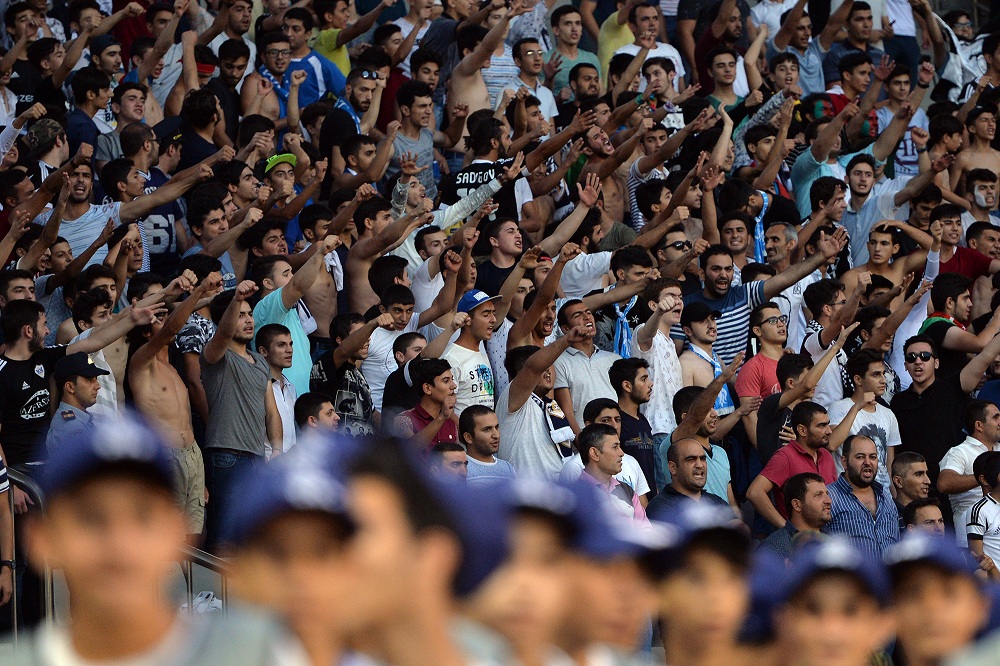
The team pays homage to the memory of people associated with not just the sport, but those affected by the war with Armenia and the continued occupation of Nagorno Karabagh. Fans from all over Azerbaijan living in refugee settlements regularly attend Qarabağ matches, under special care taken by the team’s managers and owners who provide buses to carry them to stadiums.
Allahverdi Bagirov, once Qarabağ’s head coach, was posthumously awarded the title “National Hero of Azerbaijan” after he and his driver were killed in June 1992 when their car ran over an anti-tank mine during their return to Aghdam. In 1988, Bagirov voluntarily enlisted in the Azerbaijani Army in the war against Armenia; by 1990, he had created his own battalion and rescued Azerbaijani citizens from Khojali village in Nagorno Karabakh, while exchanging dead bodies of Azerbaijani soldiers with Armenian soldiers.
Samir, now age 34, fled from Aghdam after its occupation. He credits Qarabağ for allowing him, even if just for brief moments in time, forget about the tragic war and its lasting memories.
“When I think my club could play in the Champions League group stage, a big happiness captures my heart. That’s an irreplaceable feeling for a man who has been missing his native land for more than twenty years,” Samir told Caspian News. “I believe Azerbaijan’s success in football under the name of Qarabağ will someday soon continue in the land named Karabakh,” he added.


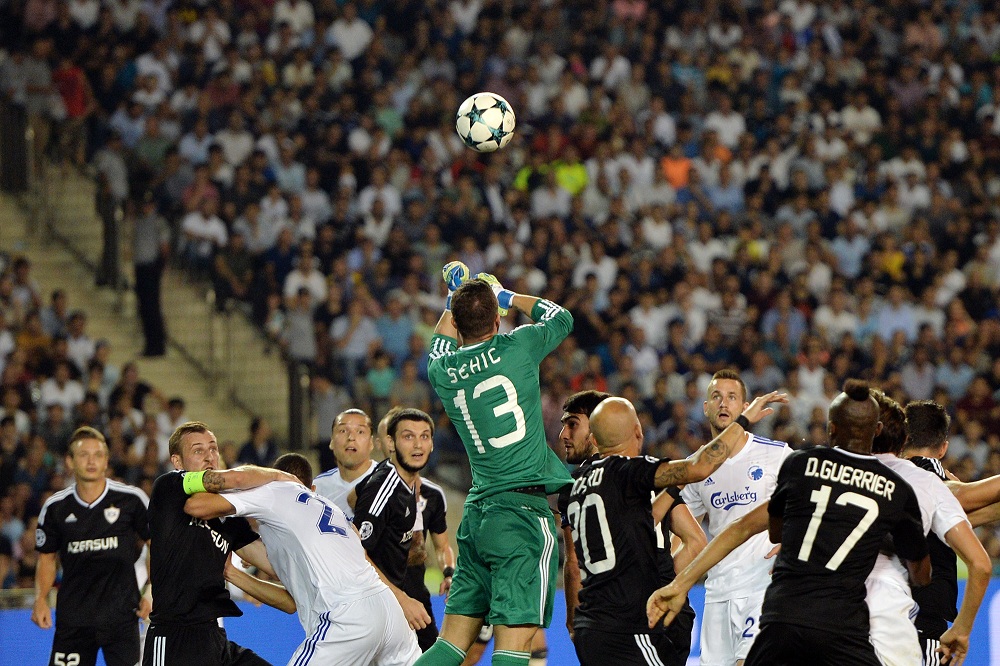




 Russian Foreign Minister Sergei Lavrov has reasserted that Moscow has no intentions to stop the fighting in Ukraine, even if peace talks commence.
Russian Foreign Minister Sergei Lavrov has reasserted that Moscow has no intentions to stop the fighting in Ukraine, even if peace talks commence.
 Iran has refuted reports of alleged damage to Shimon Peres Negev Nuclear Research Centre located southeast of Dimona, Israel, during the recent air...
Iran has refuted reports of alleged damage to Shimon Peres Negev Nuclear Research Centre located southeast of Dimona, Israel, during the recent air...
 Iran’s Foreign Minister, Hossein Amir-Abdollahian, has labeled a foiled Israeli drone attack in certain parts of the country as a "failure" for Isr...
Iran’s Foreign Minister, Hossein Amir-Abdollahian, has labeled a foiled Israeli drone attack in certain parts of the country as a "failure" for Isr...
